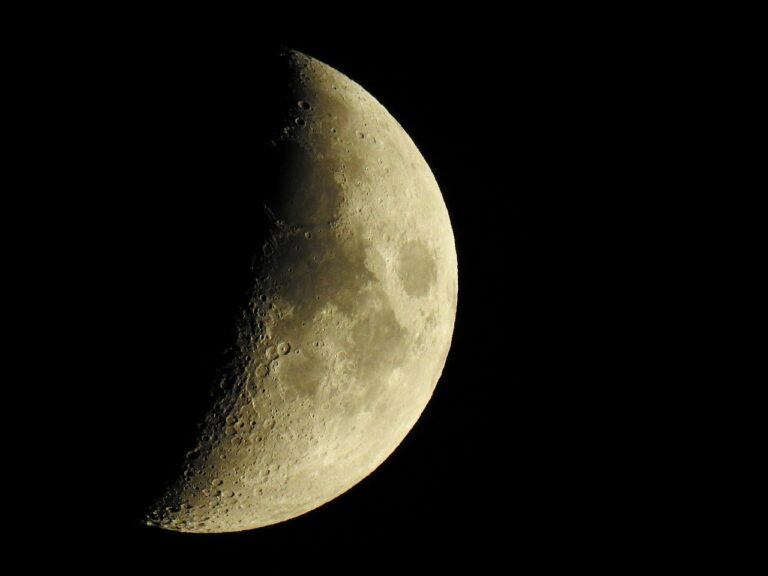Exploring the cosmos through stargazing benefits us in many ways, providing profound psychological effects that can have unexpected impacts on our lives.
By immersing ourselves in the magnificence of the night sky, we can redirect our attention from the stresses of daily life and achieve a sense of peace and calmness that can be truly revitalizing.
This blog post will explore some of these effects and how they can influence our lives in ways we might not have imagined.
Benefits of Stargazing Include Reducing Stress and Anxiety
How Stargazing can Help Reduce Stress and Anxiety
In today’s fast-paced world, it’s easy to become overwhelmed by the constant barrage of stimuli and demands.
We are bombarded by information from all directions, and it can be difficult to find a moment of peace and quiet.
However, when we engage in stargazing, we are able to disconnect from these demands and focus on the present moment.
Stargazing has been shown to have a calming effect on the mind and body, helping to reduce stress and anxiety.
The stillness and tranquility of the night sky can help to slow down our thoughts and bring a sense of calm to the mind.
As we gaze up at the stars, we are reminded of the vastness of the universe and our place within it. This can help to put our worries and problems into perspective, making them seem smaller and less overwhelming.
In addition, stargazing can also help to lower our levels of cortisol, a hormone associated with stress.
The experience of stargazing is also meditative in nature, as it requires us to focus our attention on a single, unchanging point.
This type of focused attention can help to reduce anxiety and create a sense of inner peace.
By shifting our focus away from the demands of daily life, we can create a sense of distance from our stressors and experience a sense of calm and serenity.
Scientific Studies Supporting the Link Between Stargazing and Stress Reduction
There have been numerous studies conducted to explore the connection between stargazing and stress reduction.
- One study published in the Journal of Environmental Psychology found that participants who engaged in stargazing experienced significant reductions in stress and anxiety. This study measured cortisol levels (a hormone associated with stress) and found that participants who stargazed had significantly lower cortisol levels compared to those who did not.
- Another study published in the Journal of Holistic Nursing found that stargazing was effective in reducing stress, anxiety, and depression. Participants in this study reported feeling calmer, more relaxed, and less anxious after stargazing, and these effects were maintained over time.
These studies have found that stargazing has a significant impact on our psychological well-being, particularly when it comes to reducing stress and anxiety.
Enhancing Sense of Awe and Wonder
What is the Concept of Awe and Wonder?
The concept of awe and wonder refers to the feeling of being in the presence of something so vast, beautiful, and magnificent that it inspires a sense of reverence and amazement.
This feeling can be triggered by a wide range of experiences, including natural phenomena like sunsets, mountains, and oceans, as well as man-made structures like skyscrapers and cathedrals.
Stargazing is one of the most powerful ways to experience awe and wonder, as it offers a glimpse into the vastness and complexity of the universe.
When we gaze up at the stars, we are reminded of our place in the cosmos and the incredible journey that we are on. This experience can inspire a sense of wonder and reverence, and leave us feeling humbled and awestruck.
The feeling of awe and wonder has been shown to have a powerful impact on our psychological well-being.
Research has found that experiences of awe and wonder are associated with increased feelings of happiness, well-being, and life satisfaction.
This is because awe and wonder have the ability to shift our focus away from our daily problems and bring a sense of perspective to our lives.
In addition, awe and wonder have also been shown to have a positive impact on our physical health.
Research has found that experiences of awe and wonder are associated with reduced stress and inflammation, improved cardiovascular health, and increased longevity.
This is because awe and wonder promote a sense of relaxation and calm, which has a positive impact on our physical well-being.
Scientific Studies Supporting the Link Between Stargazing and Enhanced Sense of Awe and Wonder
There has been a growing body of research exploring the relationship between stargazing and enhanced sense of awe and wonder.
Some of the most notable studies include:
- Absorption: How Nature Experiences Promote Awe and Other Positive Emotions. This study, in the journal of Ecopsychology, suggests that brief experiences in nature, where individuals become fully absorbed and engaged in the natural surroundings, promote specific positive emotions such as happiness, joy, and awe. This sense of awe is associated with feelings of amazement and wonder, often experienced in natural settings like stargazing. Nature's positive effects on emotions are attributed to the captivating and immersive qualities of the natural environment, which can enhance overall positive affect and distinct positive emotions. This information underscores the potential of stargazing and similar nature-based experiences to evoke awe and enhance emotional well-being, contributing to the broader understanding of the positive impact of nature on human emotions.
- Nature can get it out of your mind: The rumination reducing effects of contact with nature and the mediating role of awe and mood. This study's findings align with the potential psychological benefits of stargazing, which, like exposure to nature, can evoke a profound sense of awe and wonder. Just as a brief encounter with nature can reduce rumination and improve mood, gazing at the night sky and its celestial wonders may similarly induce awe and positive emotions, ultimately leading to enhanced mental well-being. Stargazing, like the nature exposure discussed in the study, exemplifies how experiences of awe and wonder in natural settings can play a crucial role in reducing negative thinking and fostering positive emotions, contributing to a deeper understanding of the therapeutic effects of such experiences on the human psyche.
By offering a unique perspective on the world, connecting us with the natural world, and inspiring a sense of mystery and discovery, stargazing is an effective tool for enhancing our sense of awe and wonder and promoting psychological well-being.

Promoting Mindfulness and Relaxation
How Stargazing can Promote Mindfulness and Relaxation
Stargazing can promote mindfulness and relaxation in several ways:
Engage the Senses
Stargazing is an immersive experience that engages all of our senses, including sight, sound, and touch. By taking in the sights, sounds, and sensations of the night sky, individuals are able to focus their attention on the present moment.
Quiet the Mind
Stargazing is an excellent tool for quieting the mind and reducing distractions. By focusing on the beauty and wonder of the night sky, individuals are able to escape the noise and distractions of daily life.
Connect with Nature
Stargazing is a way of connecting with the natural world, and has been shown to have a positive impact on our relationship with nature. By spending time stargazing, individuals are able to engage with the environment and appreciate the beauty and majesty of the natural world, promoting feelings of peace and calm.
Encourage Reflection
Stargazing can also promote mindfulness and relaxation by encouraging reflection and introspection. By taking the time to contemplate the night sky and our place in the universe, individuals are able to gain a new perspective on their lives and their place in the world.
By engaging the senses, quieting the mind, connecting with nature, and encouraging reflection, stargazing can help individuals to reduce feelings of stress and anxiety, improve mood, and enhance overall psychological well-being.
Scientific Studies Supporting the link Between Stargazing and Mindfulness and Relaxation
Several scientific studies have explored the relationship between stargazing and mindfulness, relaxation, and overall psychological well-being.
- One study found that exposure to natural environments, including stargazing, was associated with lower levels of cortisol (a hormone associated with stress) and increased feelings of relaxation and tranquility.
- Another study found that participants who engaged in stargazing reported lower levels of stress, anxiety, and depression, as well as increased feelings of peace and well-being. The study concluded that stargazing can have a positive impact on overall psychological health and well-being.
- A more recent study found that stargazing was associated with increased feelings of awe and wonder, which in turn were linked to greater levels of mindfulness and overall life satisfaction. The study concluded that stargazing has the potential to promote mindfulness and well-being by fostering feelings of awe and wonder.

Improving Sleep
How can Stargazing Improve Your Sleep?
Stargazing has been shown to have a positive impact on sleep in several ways:
Reducing Stress and Anxiety
As discussed earlier, stargazing has been linked to lower levels of stress and anxiety, and this reduction in stress can help improve sleep quality. By reducing feelings of stress and anxiety, stargazing can promote relaxation and calm, making it easier for individuals to fall asleep and stay asleep.
Regulating Circadian Rhythms
Stargazing can also help regulate circadian rhythms, which are the internal biological processes that regulate our sleep-wake cycle. Exposure to natural light, such as that found during stargazing, has been shown to regulate circadian rhythms and promote healthy sleep patterns.
Promoting Relaxation
As discussed earlier, stargazing can promote relaxation and quiet the mind, making it easier for individuals to fall asleep. By providing a calming and peaceful activity, stargazing can help improve sleep quality and reduce the time it takes to fall asleep.
Reducing Screen Time
In today’s world, many people spend hours each day looking at screens, which can disrupt sleep patterns and reduce sleep quality. Stargazing is a way to disconnect from screens and engage in a calming and peaceful activity, which can help improve sleep quality.
Stargazing has the potential to improve sleep quality by reducing stress and anxiety, regulating circadian rhythms, promoting relaxation, and reducing screen time.
Scientific Studies Supporting the Link Between Stargazing and Improved Sleep
Several scientific studies have explored the relationship between stargazing and sleep quality.
- One study found that exposure to natural light, such as that found during stargazing, can regulate circadian rhythms and improve sleep quality. Participants who spent time in natural light environments, including stargazing, reported improved sleep patterns and better overall sleep quality.
- Another study found that stargazing was associated with reduced levels of stress and anxiety, which in turn were linked to improved sleep quality. The study concluded that by reducing stress and anxiety, stargazing has the potential to improve sleep quality.
Stargazing is a simple, yet powerful activity that has the potential to improve our physical and mental well-being. From reducing stress and anxiety to enhancing our sense of awe and wonder and promoting mindfulness and relaxation, stargazing has many benefits.
You don’t need any special equipment or training to start stargazing. All you need is a clear night, an open mind, and a willingness to experience something new.

Andrew
With years of experience and a passion for exploring the cosmos, I want to be your go-to destination for all things celestial. My mission is to bring the wonders of the universe to your fingertips and demonstrate how the art of stargazing and telescope therapy can nurture not only your astronomical curiosity but also your mental health. Explore the cosmos with me and discover the profound connection between the night sky and your inner peace.
Matthew T. Ballew and Allen M. Omoto.Absorption: How Nature Experiences Promote Awe and Other Positive Emotions.Ecopsychology.Mar 2018.26-35.http://doi.org/10.1089/eco.2017.0044
Lopes a, et al. “Nature Can Get It out of Your Mind: The Rumination Reducing Effects of Contact with Nature and the Mediating Role of Awe and Mood.” Journal of Environmental Psychology, Academic Press, 25 Aug. 2020, www.sciencedirect.com/science/article/abs/pii/S0272494419304062?via%3Dihub.








After a telescope saved my life in 2019, my wife and I created a nonprofitfocused on using astronomy to help youth and the community with mental wellness to combat the rising self harm, suicide, stress, anxiety and depression rates in locals within Tucson Arizona. Reach for the Stars was born, and it is the first nonprofit to implement telescopes to improve mental health. Now, we are a growing, thriving mission and the outcomes are incredible. With free stargazing events, STEM & Art programs all based around the cosmos, it’s clear that people want this. It’s fun, unique, powerful and the awe that results is therapeutic. Astronomy saved my life, now we are doing the same for others. Check out our mission here: http://www.rftstars.com
“EXPLORING THE UNIVERSE TO HEAL THOSE IN IT. – Carlos Aragon, CEO
Thank you for this article and information.